I want a table/chart of the price of iron (various grades including steel) over the long run, say 1700–present. Surely this is a thing the field of economic history should have produced by now? Yet, the data seems scattered and not unified. Am I missing something?

Surely this is a thing the field of economic history should have produced by now? Yet, the data seems scattered and not unified.
Mass transit came before cars. It was good, but not enough. There was tremendous demand for cars, and consumers rapidly switched: pic.twitter.com/x70vnYd0P1
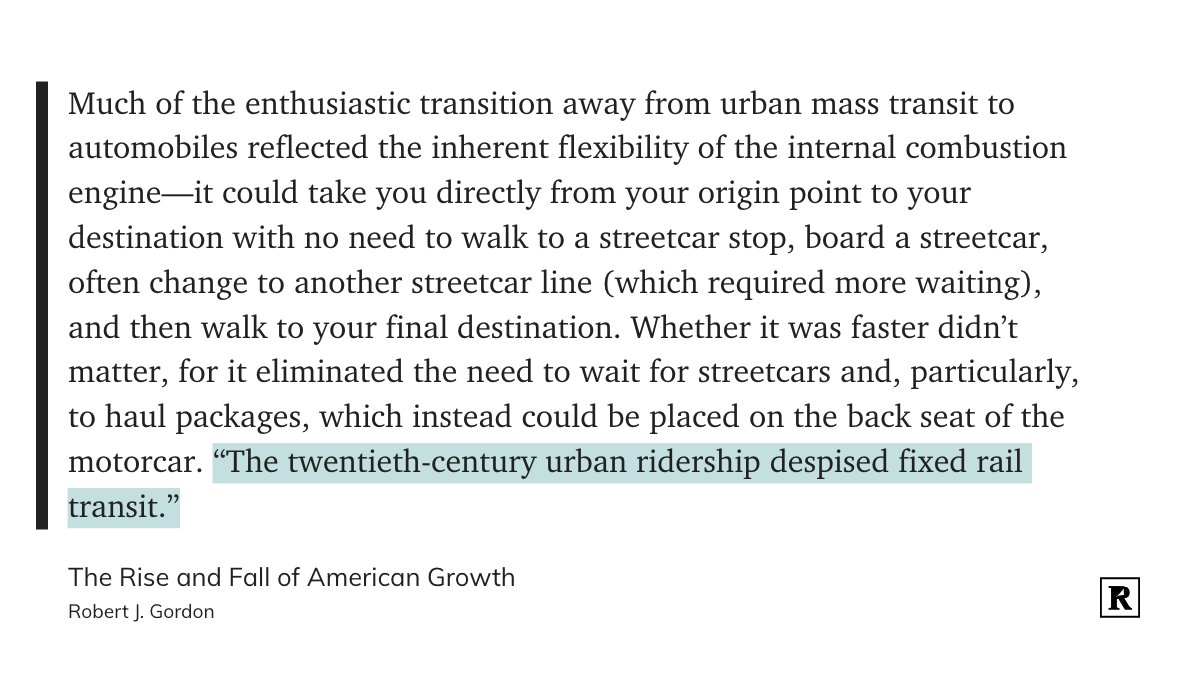
Large cities were considered unsustainable by many, before modern sanitation: pic.twitter.com/ti2f9CbTdR
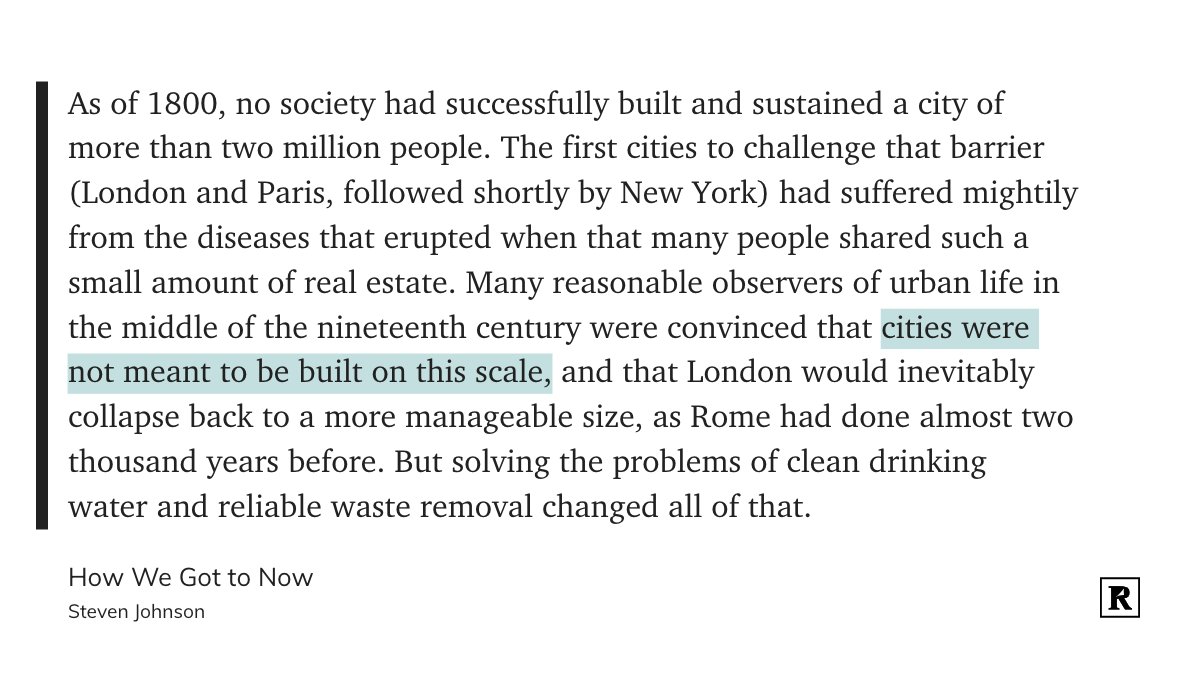
The phonograph was invented in the late 1800s, but for decades, recording technology was quite primitive by today's standards: pic.twitter.com/RcVLhkSbKO
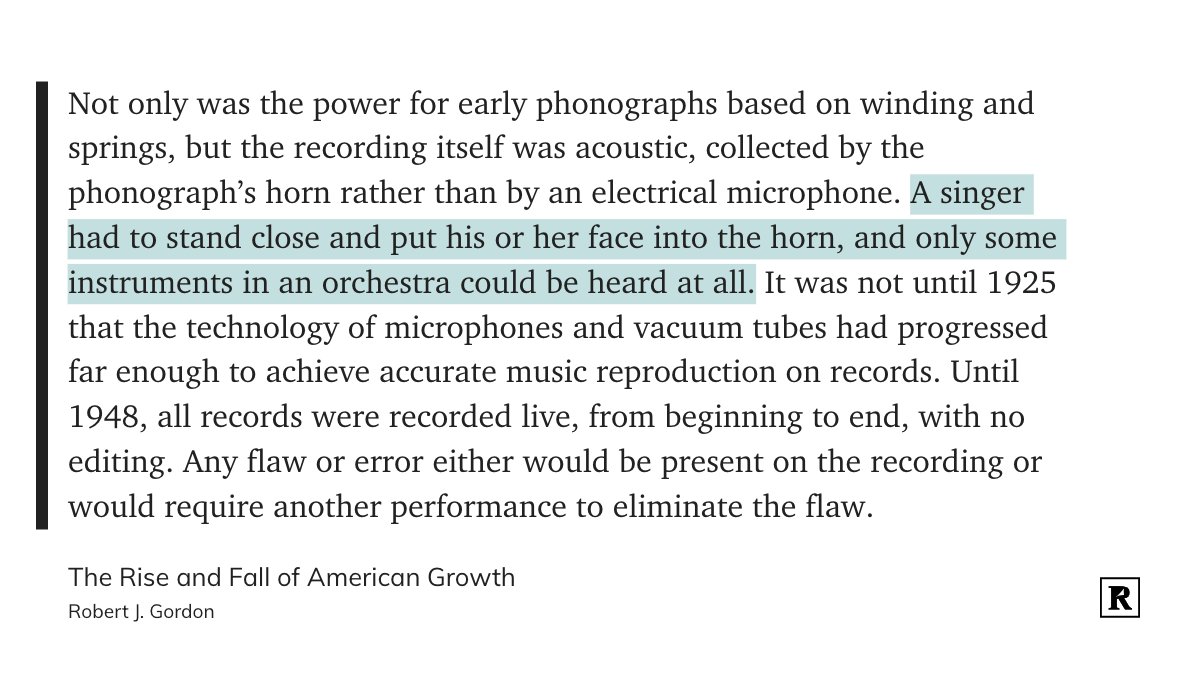

Ford on Edison: pic.twitter.com/Pf444rXlEd
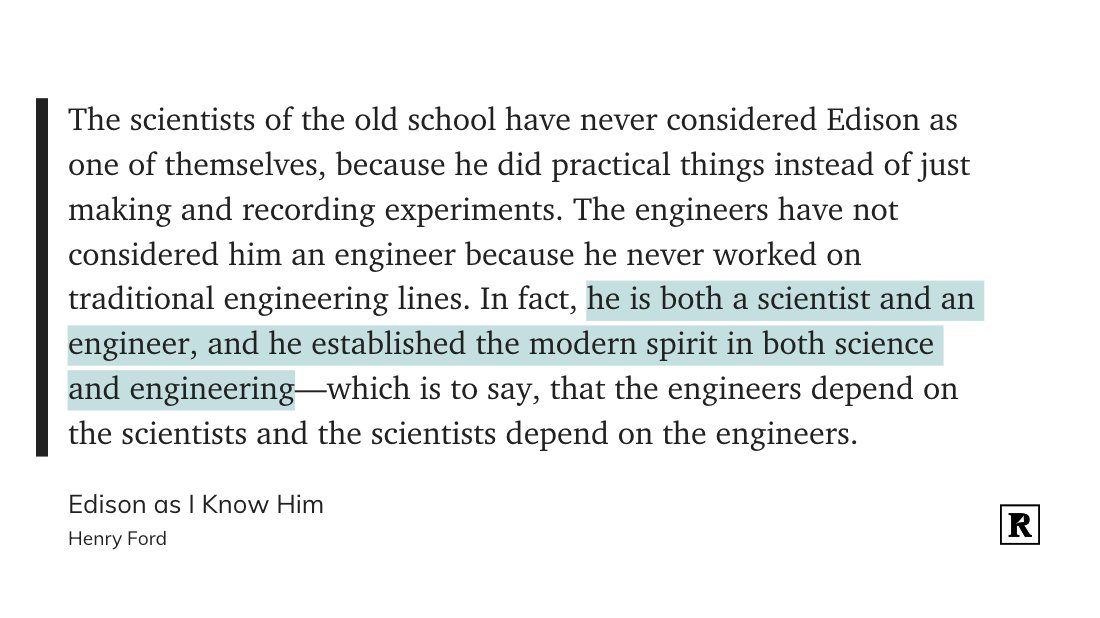

Household entertainment, such as it was, c. 1870: pic.twitter.com/RHGXTxY4pX
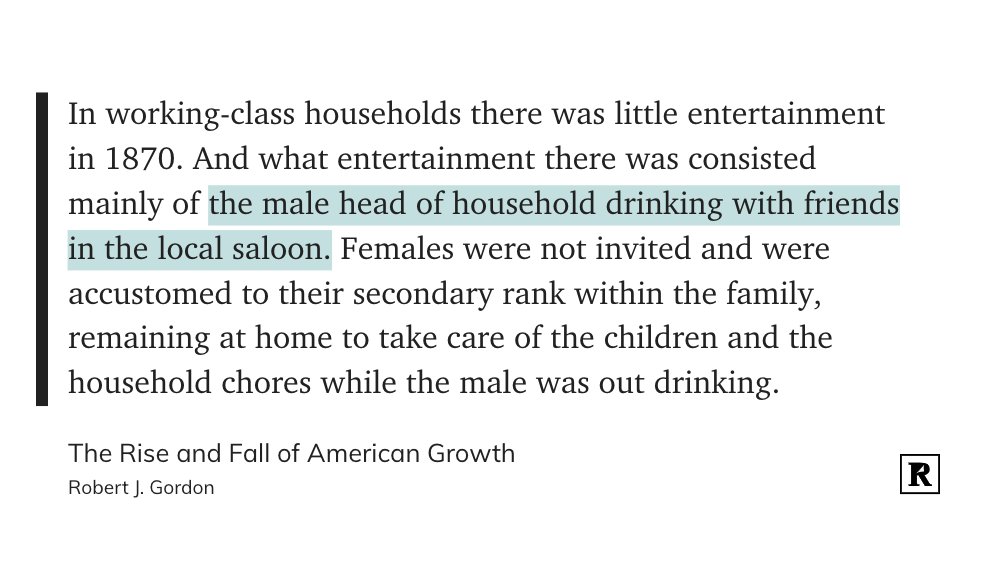

Why innovation is hard: the idea maze is intricate, and you're groping in the dark. Trying topical applications of penicillin to wounds was a totally reasonable idea, but it didn't work. Easy to get discouraged and not realize you are one tweak away from a breakthrough pic.twitter.com/zmYueMaQ8w


The idea maze is intricate, and you're groping in the dark. Trying topical applications of penicillin to wounds was a totally reasonable idea, but it didn't work. Easy to get discouraged and not realize you are one tweak away from a breakthrough

Progress in milking: pic.twitter.com/xpPMSc2fKq
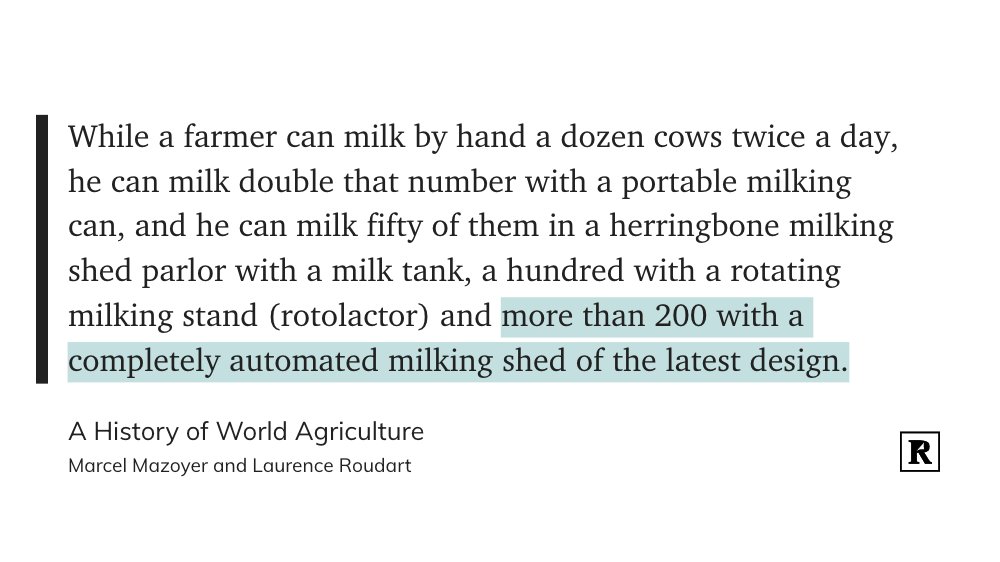

The late, great @HansRosling on “living in balance with nature”: pic.twitter.com/vSv6uUmwKS
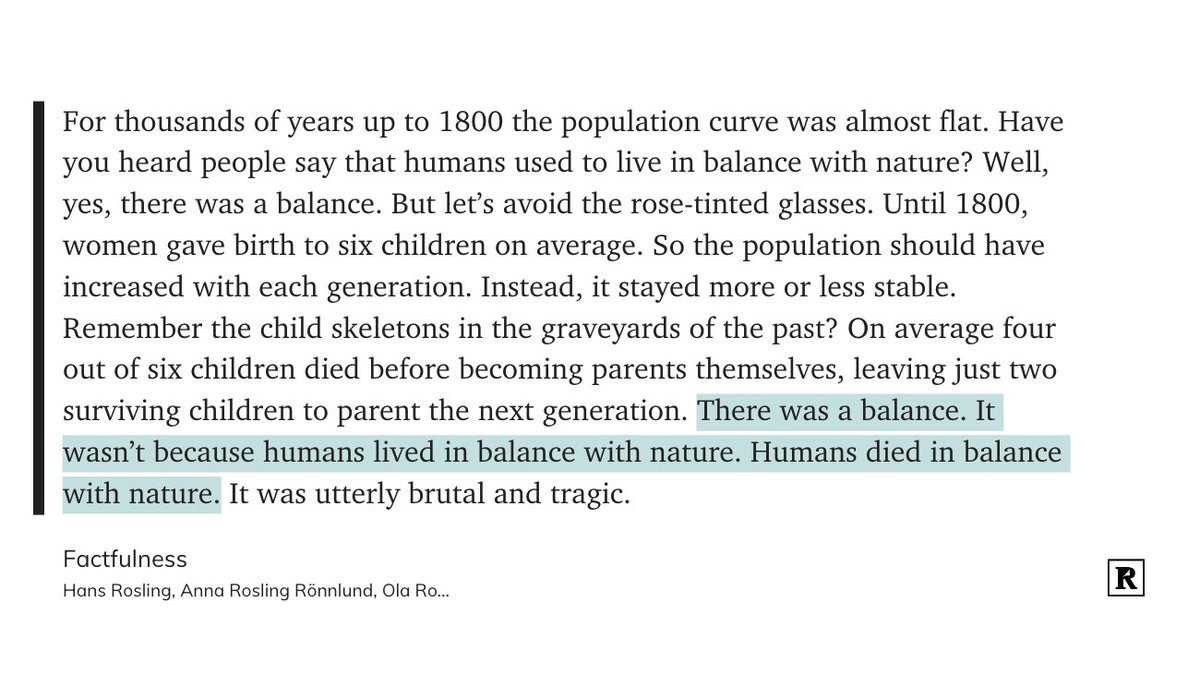

The transition from urban transit to automobiles was “enthusiastic”. “The twentieth-century urban ridership despised fixed rail transit.” pic.twitter.com/OUlCxig4HR
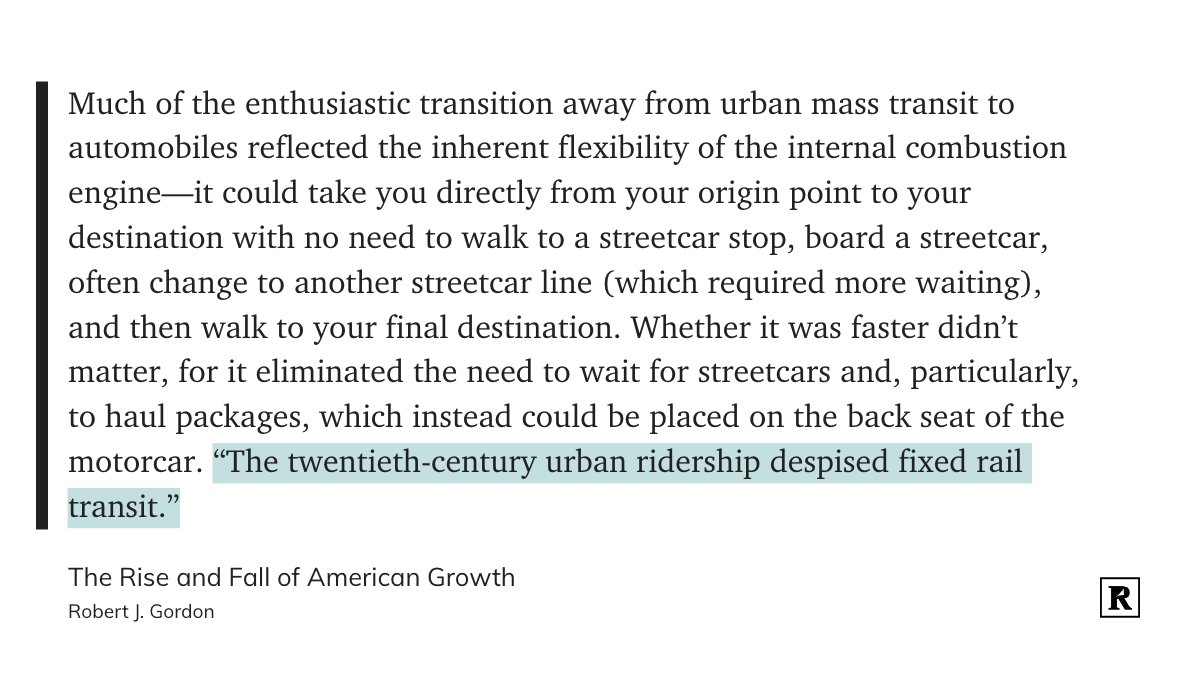
An ode to the jet engine pic.twitter.com/GbhkwXZfSB
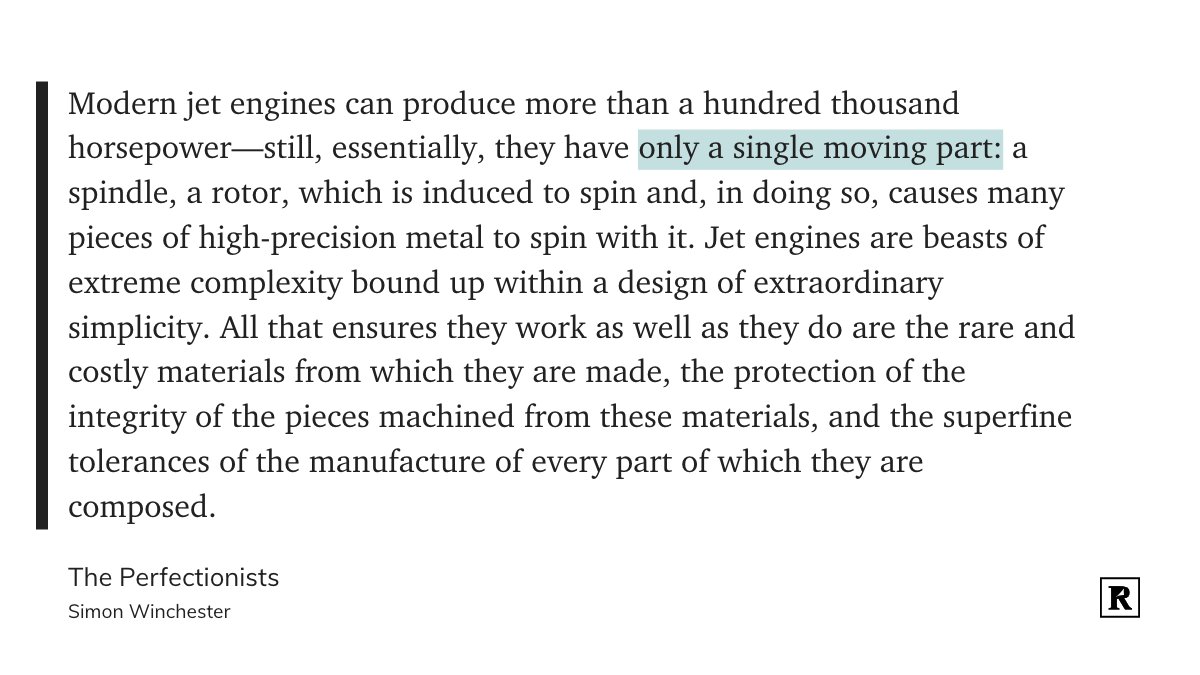
Job security is much greater today than in the early 20th century and before. Day labor and piece work were gradually replaced with full-time permanent employment. pic.twitter.com/7I5ciw6GTI
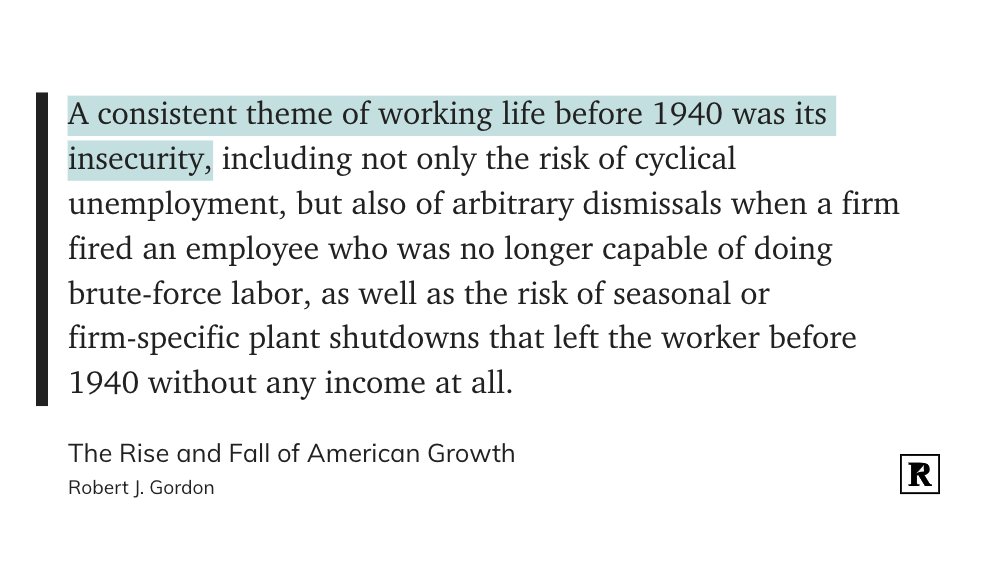

Day labor and piece work were gradually replaced with full-time permanent employment.

Retirement is a 20th-century invention. The machines *did* take our jobs—they took jobs away from the elderly after retirement, from school-age children, and from everyone else after 5pm and on the weekends. And that's a good thing. pic.twitter.com/fAY76f8UM6
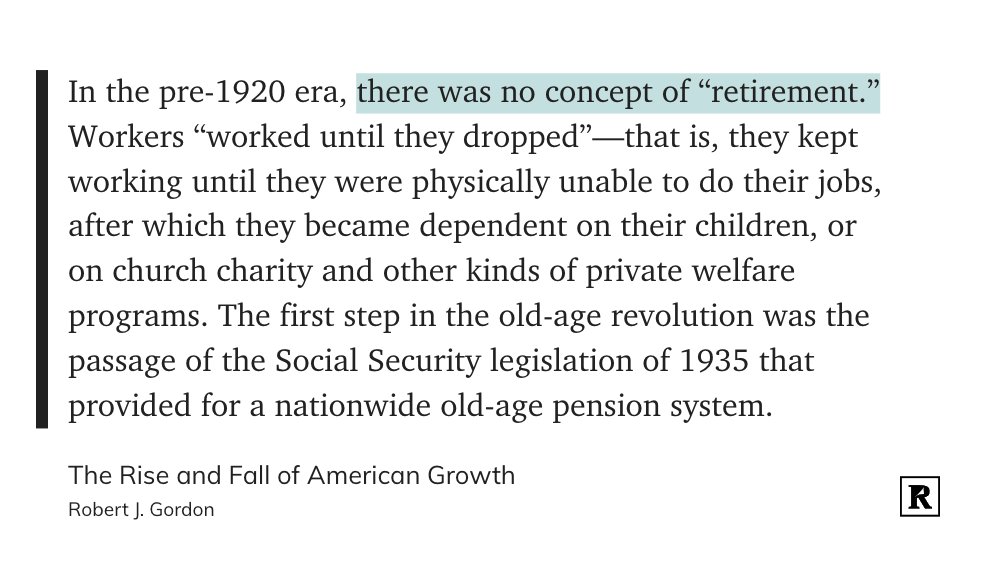

The machines did take our jobs—they took jobs away from the elderly after retirement, from school-age children, and from everyone else after 5pm and on the weekends. And that's a good thing.
We take food security for granted, but it's a major 20th-century achievement. In addition to the threats of drought and frost, crops were also subject to the ravages of disease and pests: pic.twitter.com/G0PQCSwLSy
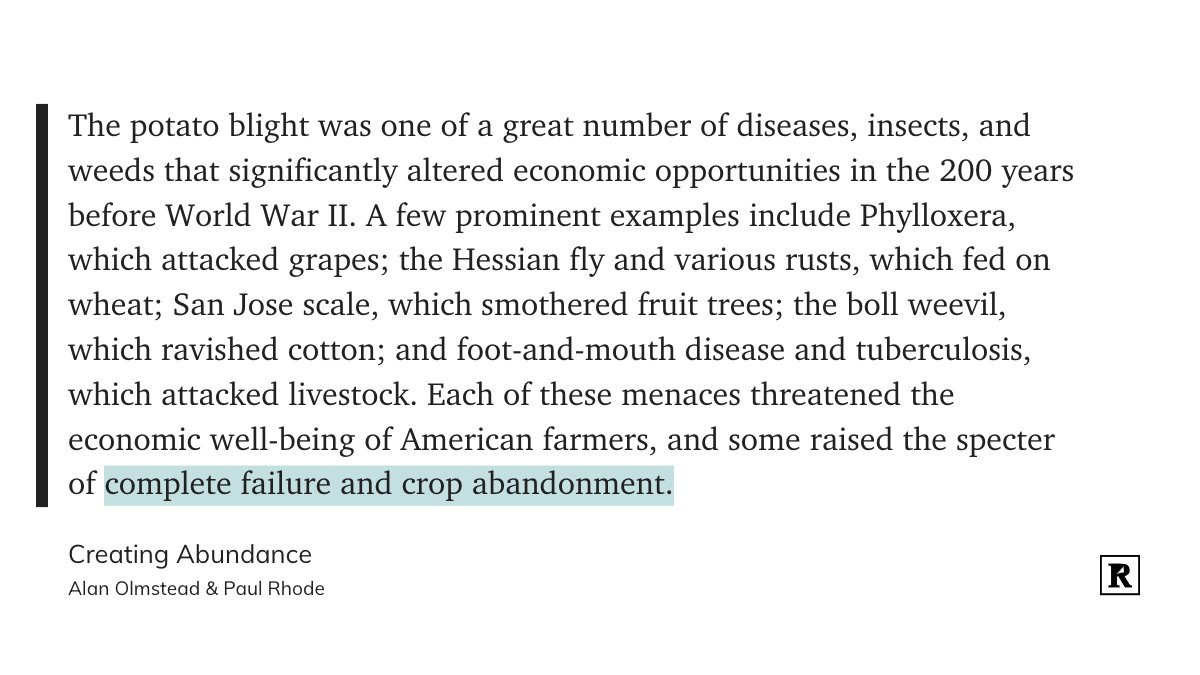

I find it fascinating that even within stone tools, a technology that dates back millions of years (before our own species!), there is a story of progress. Polished stone had several advantages over flaked stone: pic.twitter.com/XroRVzzlRx
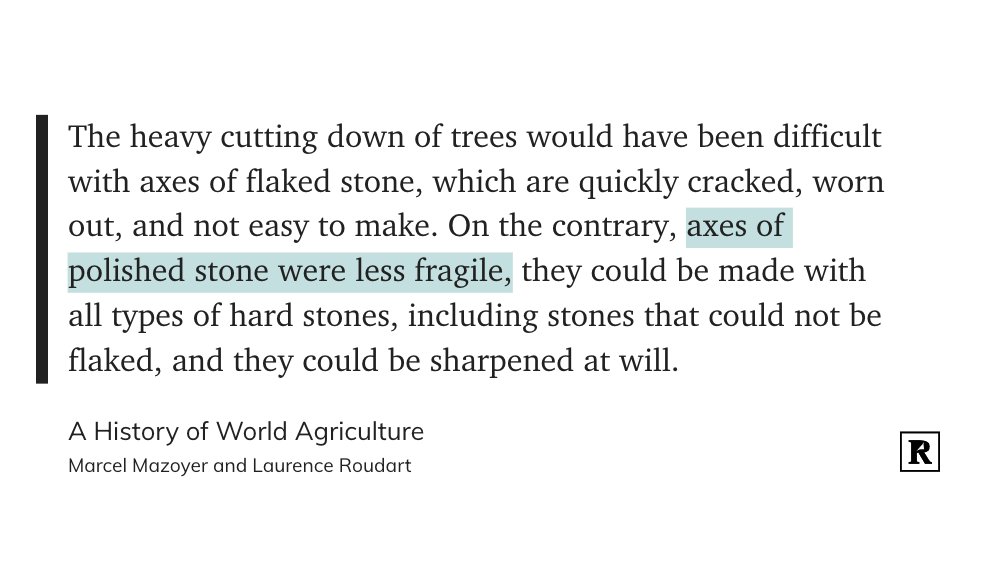
Imagine having no central heating, and having to take a hot brick from the kitchen stove to your room to warm up your bed at night: pic.twitter.com/rAMaK8XFGn
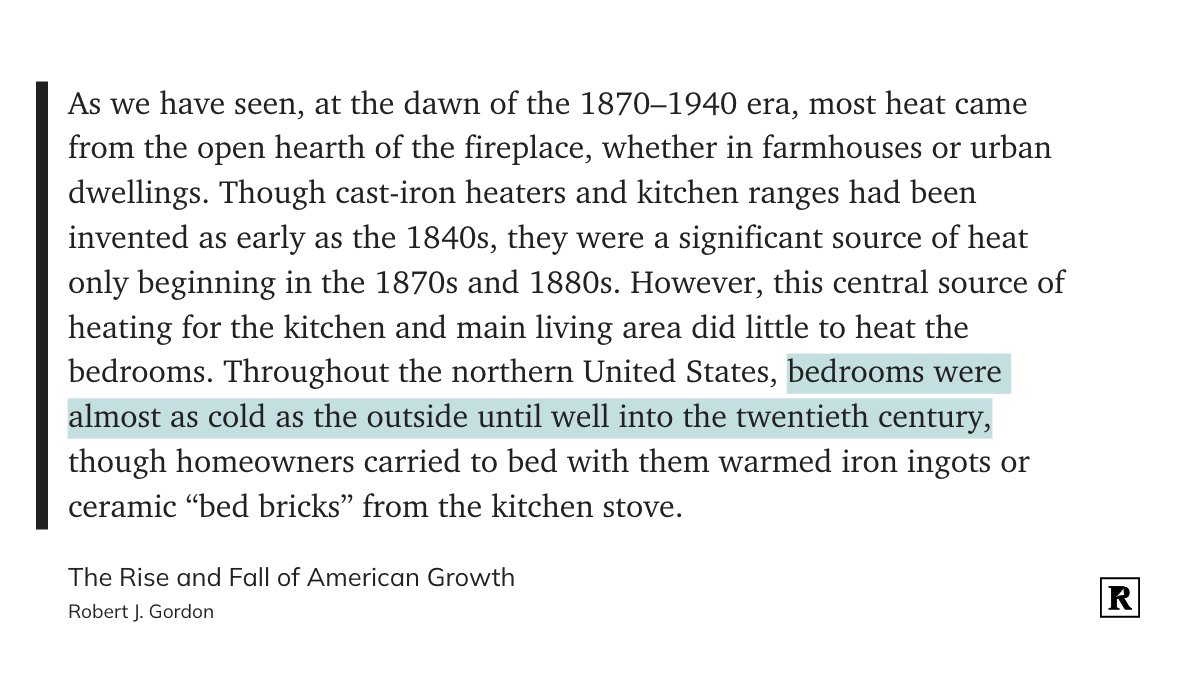

Artistic sensibilities can help scientific discoveries: pic.twitter.com/PWnxfSoAgO
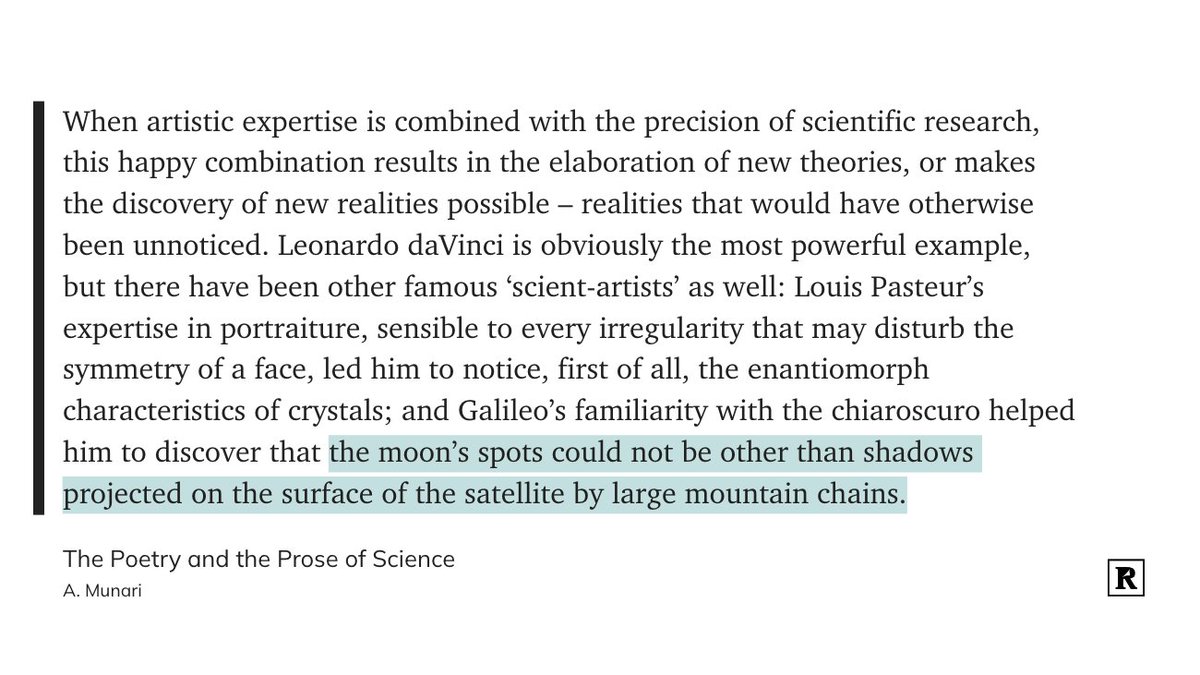

“The Revolution has given the people the meter” pic.twitter.com/9TmuqNNUEN
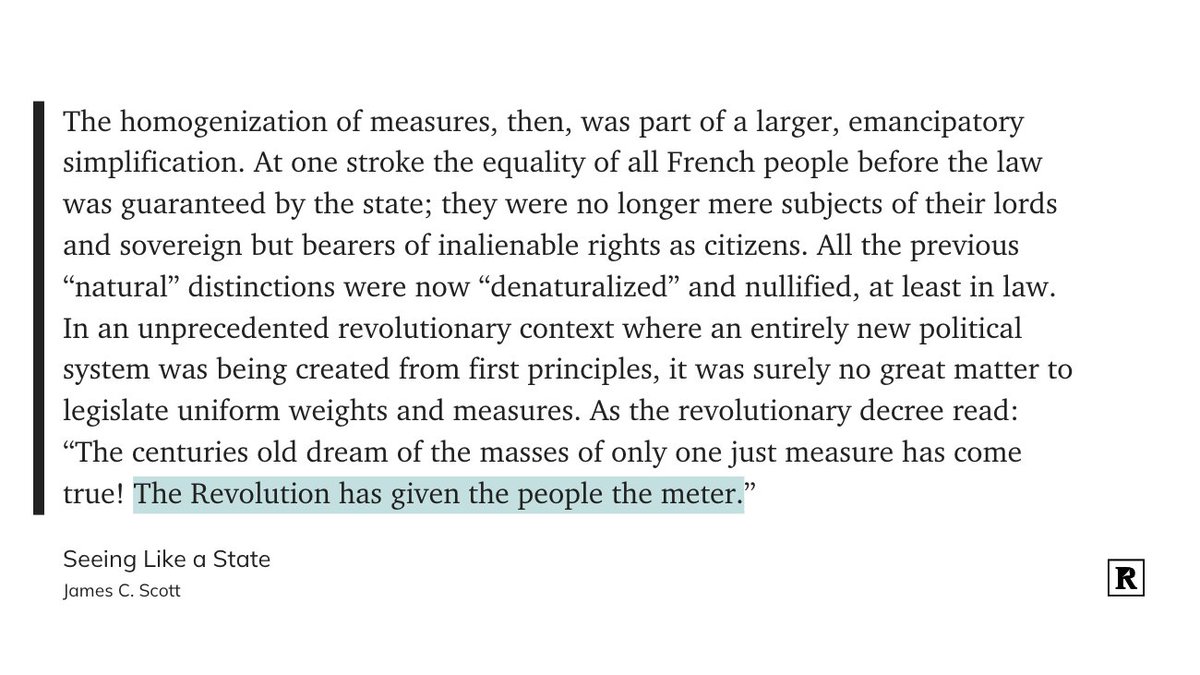
The American “worships the results of things that are big” but “hates anything that is big and powerful” pic.twitter.com/pU8mFGX7lY
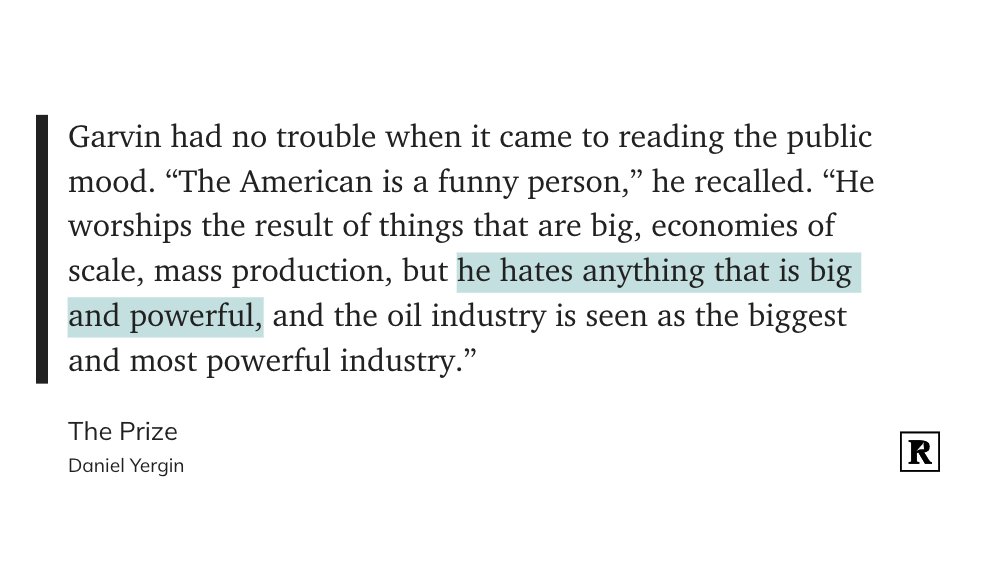
In capitalism they use every part of the animal pic.twitter.com/8JotvQDuNT
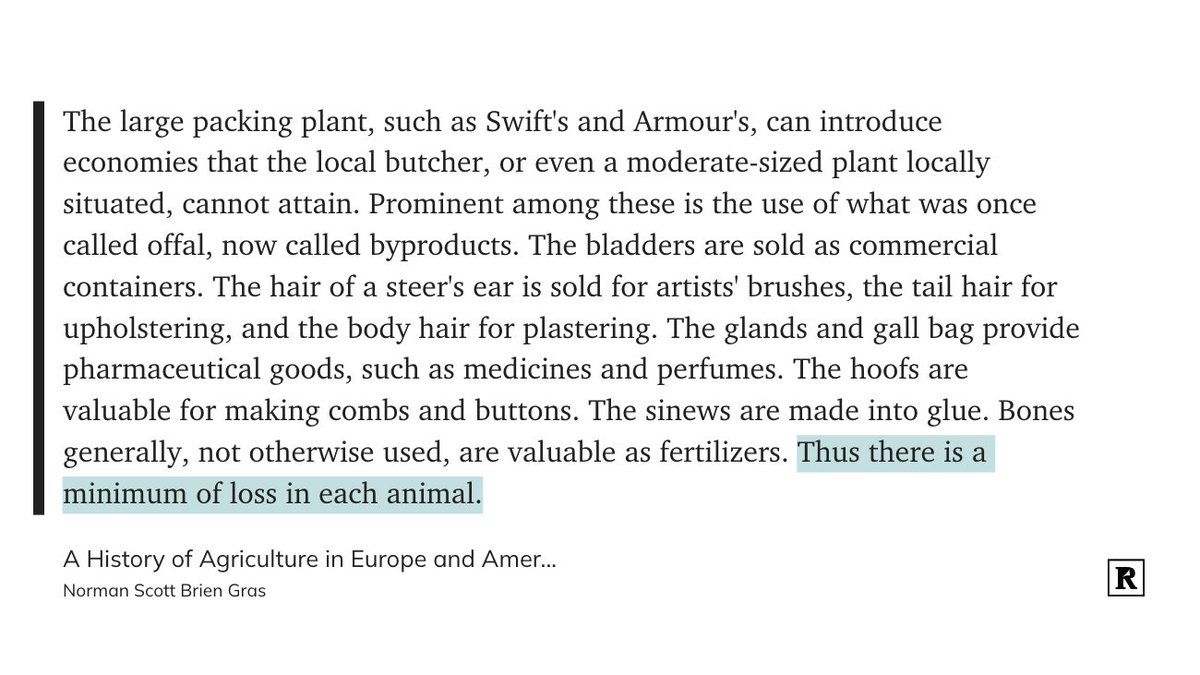
The three sins of the experimenter pic.twitter.com/DcWBmcO4Sz
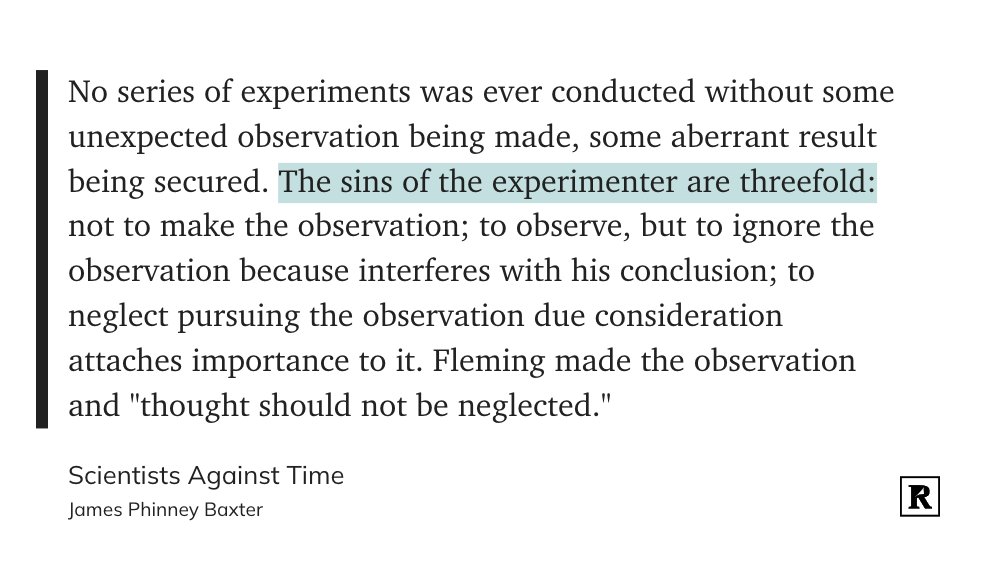

“Thermodynamics owes more to the steam engine than the steam engine owes to thermodynamics.” True—but the steam engine owes a lot to the theory of air pressure and the properties of the vacuum: pic.twitter.com/IA9znp9oWi
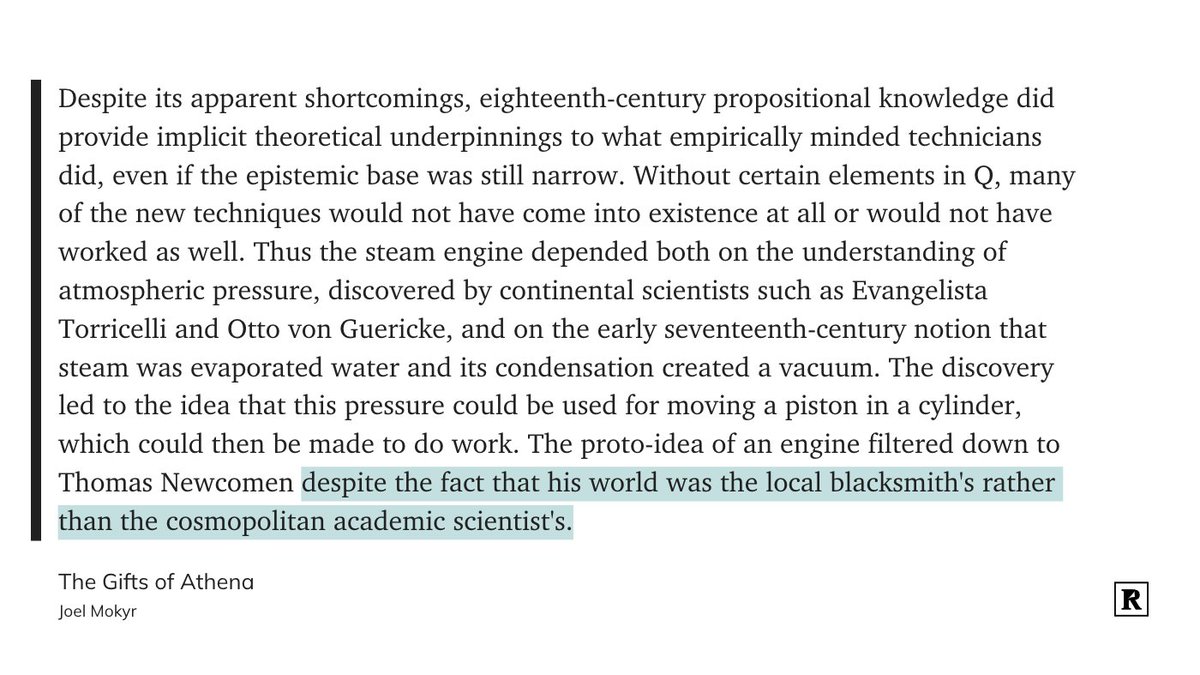

True—but the steam engine owes a lot to the theory of air pressure and the properties of the vacuum.
Howard Florey—head of the lab that created penicillin, and hence one of the greatest benefactors of humanity—wasn't motivated by humanitarianism, but by science: pic.twitter.com/Ao2IFzBUH7
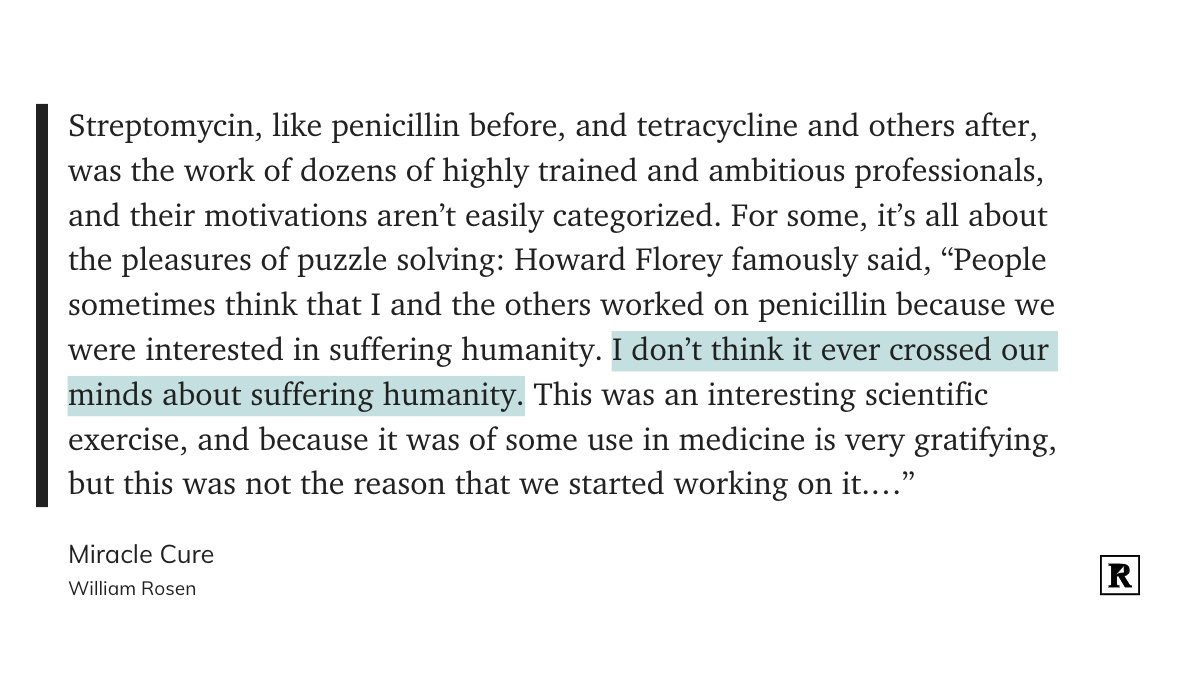
Wealth is *created*. The corollary: “we can figure out how to make more of it” @sapinker pic.twitter.com/fmXtpM4neM
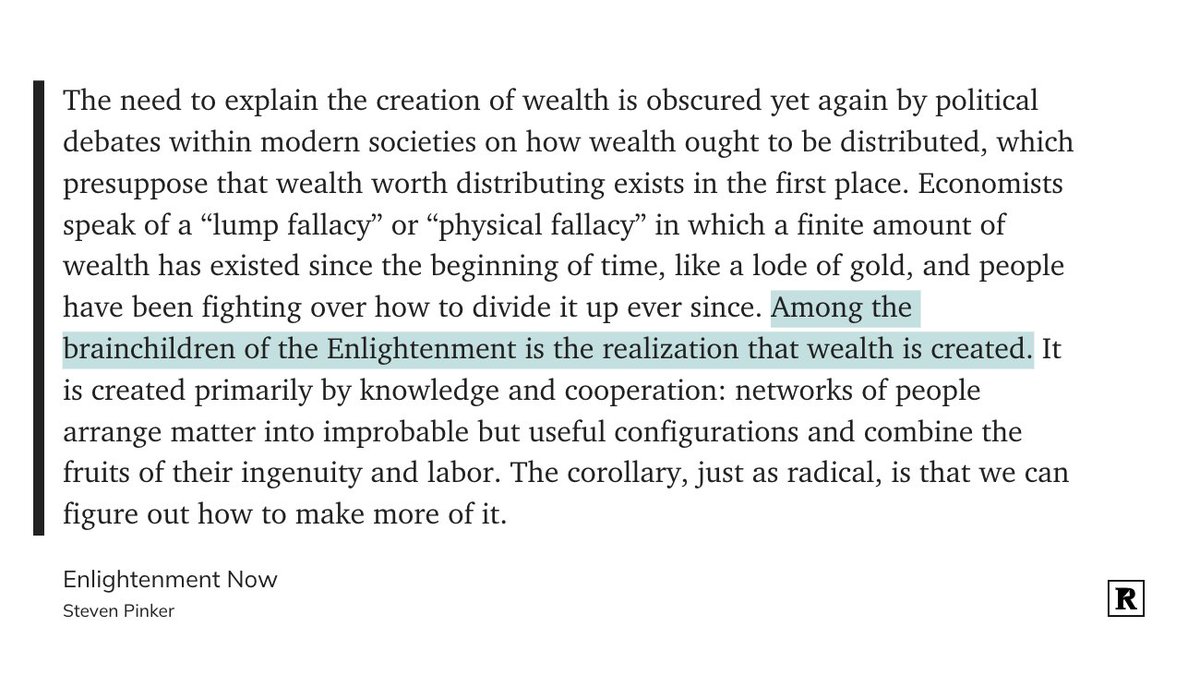
Tinkering alone could never have created a sustained Industrial Revolution: pic.twitter.com/OOYtwzPZm8
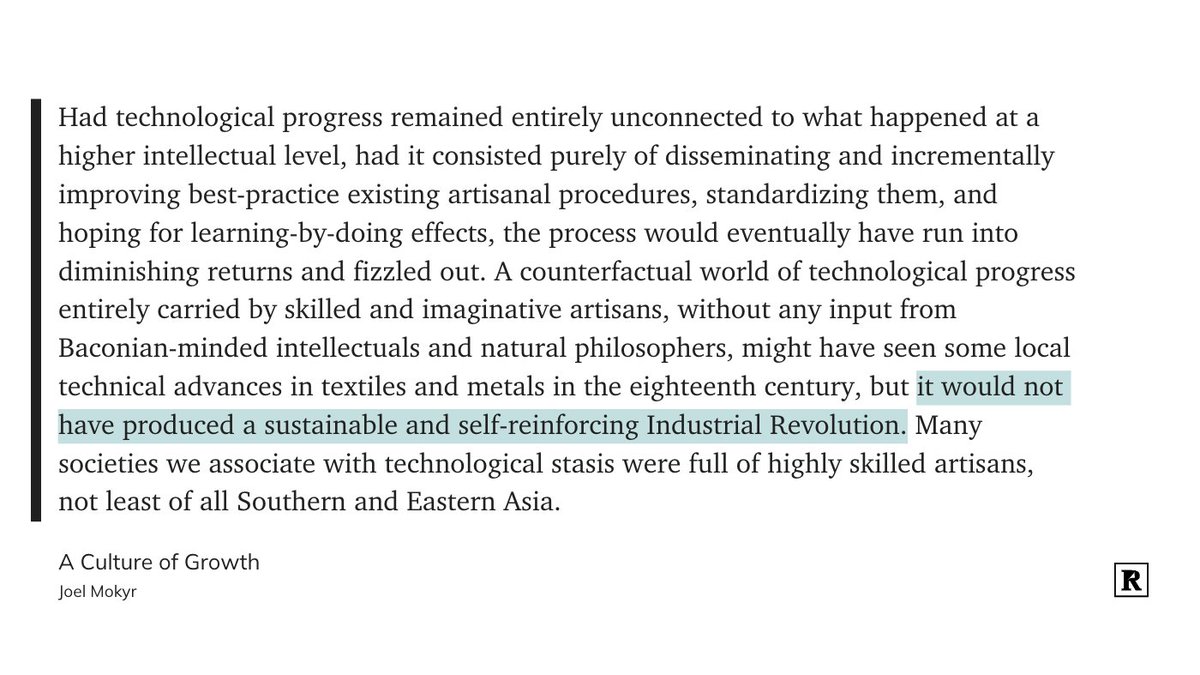
Sandra Shaw makes art history into a grand and dramatic story—how views of life and the world have changed over the long term, illustrated in painting and sculpture. I'm excited about her new book, which I just bought: windowsonhumanity.com
Our daughter was born this year. To her, the Sept. 11 attacks and the wars that followed will be history—almost as far in the past for her as the Vietnam War is for me.
Sometimes the “lazy” guy just figured out how to be more efficient pic.twitter.com/lVl6Vc5GBq
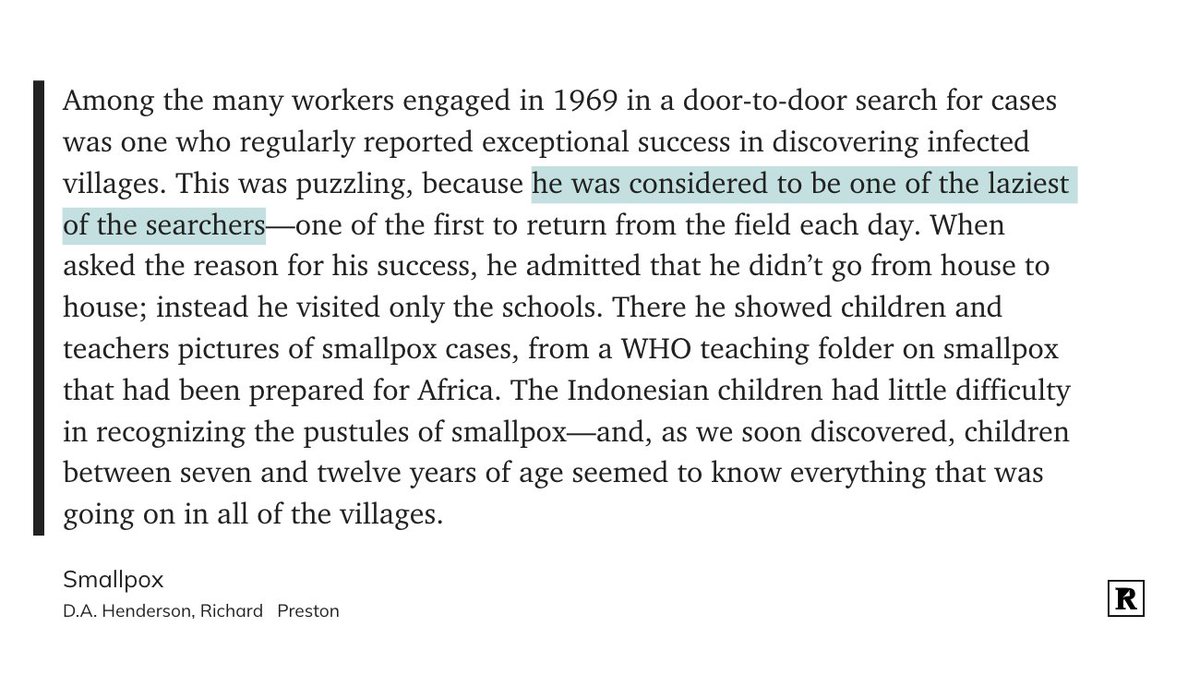
This idea seems obviously wrong to us now, but it was not at all obvious before the germ theory pic.twitter.com/Jn5dRxfVST
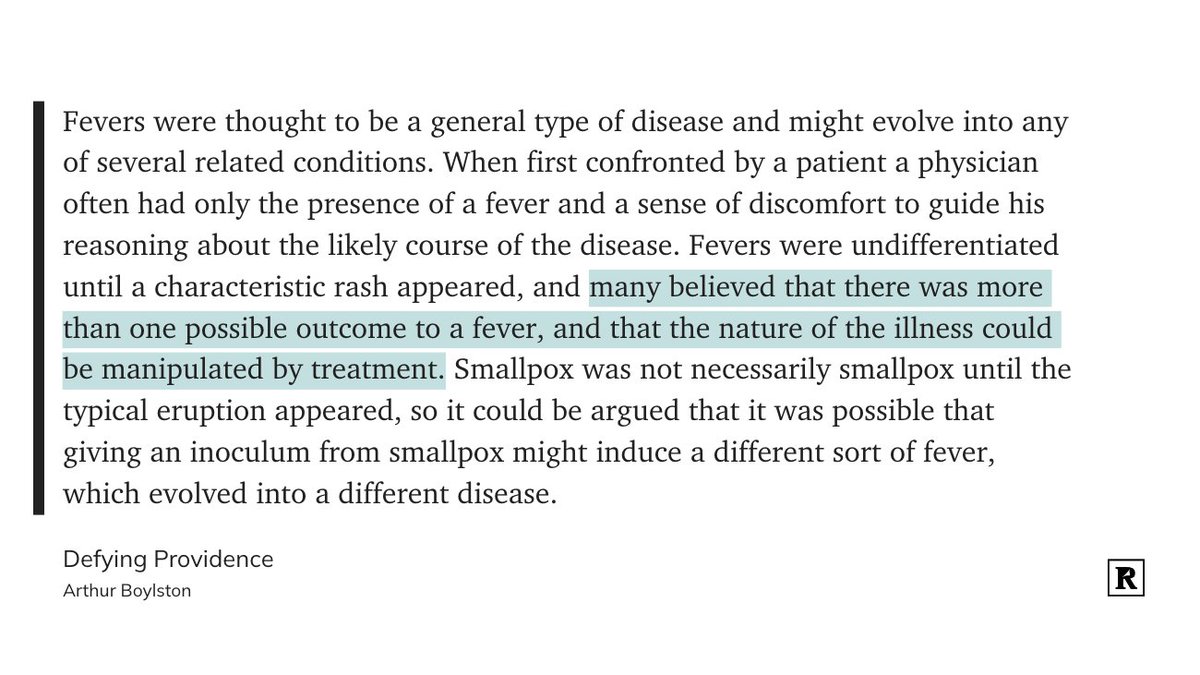
This is a point also made by @rachellaudan: dishes we think of as “traditional cuisine” are *not* what the average person ate for most of history pic.twitter.com/nvHypKnNqr































